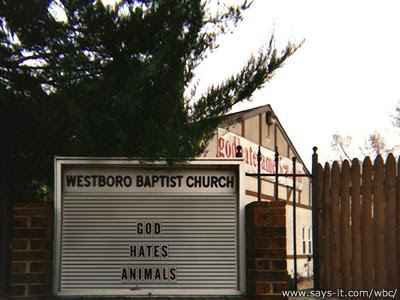Glenn Davis Stone, Professor of Anthropology and Environmental Studies at Washington University, St. Louis, Missouri, and pro-GMO blogger at fieldquestions.com, posted an essay on Nov. 26, 2012, "The Animal Lover's Dilemma", by Elizabeth Vandeventer of Davis Creek Farm, Nelson County, Virginia. She is another supposedly ex-vegetarian who describes her sense of missing out on the death action in the great cycle of life. So she attacks vegans, who she blames for palm oil plantations, among other evils of industrial agriculture and chemistry, for not being more informed than the general population about the same food that everyone else eats. And of course, unlike people who just buy their packaged meat in the grocery store, she "honors" animals by raising them and thanking them before killing them to sell as packaged meat at farmers' markets.
Vandeventer was inspired to write because of the international outrage about Green Mountain College's determination to kill their oxen Bill and Lou. (They went ahead and killed Lou, rather than give him adequate veterinary care, but did it medically so they could whine that his "meat" was wasted.) Bill, no longer working for his room and board, still languishes at the college in Limbo despite at least two offers of sanctuary.
While the college raised one of those sanctuaries, called VINE, for Veganism Is the Next Evolution, to arch-adversary, unable to separate VINE's specific concern for Bill and Lou from their antipathy to its larger outlook (animal rights, human rights), and then unwilling to hear any advocate for Bill and Lou except that of their imagined version of VINE — now an extremist, terrorist organization ready to firebomb the college — Vandeventer creates her straw man at the other end, conjuring mindless consumerist sentimentalist "animal lovers" who are singularly responsible for the destruction of rain forests for palm oil plantations.
The essay is the usual self-justifying drivel, which continues in the comments below it. I write about it today because host Glenn Davis Stone just added what I suppose he thinks should be a succinct wrap-up:
Meat eating causes more death but it causes more life as well. I have been to Elizabeth’s farm and seen the hundreds of chickens and cattle enjoying life on her pastures. All because of meat eaters.How does one respond, after the laughter, to such madness? "Rucio" tries:
And then having that life cut violently short. For the enjoyment of meat eaters. Only increasing the animals' gratitude, no doubt.Note: According to a profile of Charlottesville (Va.)–area farmers, Vandeventer's farm has 4,000 "meat" chickens. Each of them named, of course, and roaming free. And according to her own web site, both the chickens and the cows do not exist solely on the grass and grains of the farm. Although Vandeventer claims that grazing is the only agriculture possible for her land (the pictures showing lush grasses and fairly flat fields suggests otherwise, however), her business depends on other farmland growing crops not for people but for her "livestock", i.e., it is not at all a model of sustainability unless that means only sustaining a meat industry.
Update: Davis Stone replied to Rucio's comment: "I’m not sure what “violent” means here — Elizabeth’s animals are killed instantly. Hard to imagine an animal being grateful to people for arguing they never be born just because they were going to die." To which Rucio replied: "What could be more violent than killing another being well before the time of its natural death?" and "It is even harder to imagine an animal being grateful to people for arguing that they must kill it to justify its life."
environment, environmentalism, human rights, animal rights, vegetarianism, veganism, Vermont, anarchism, ecoanarchism
